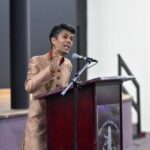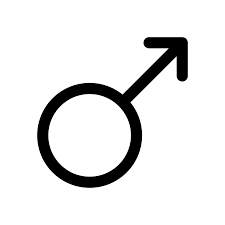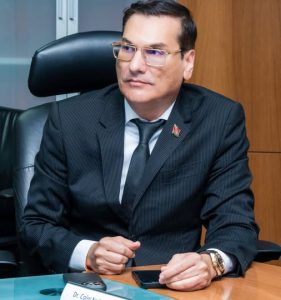
THE global men’s movement face numerous challenges including deconstructing stereotypes, removing barriers, crossing boundaries and destroying those walls which have created sadness, pessimism, loneliness and pain. Men who are marginalised must be returned to the mainstream. Those who are alienated must be accepted. We cannot fall into the trap of believing that boys and men do not suffer from eating disorders or that men are not victims of human trafficking.
No longer must men be the ‘invisible gender’ who would be wrongly labelled as pigs, abusers, sexist, evil or rapists. Some of us make rules and long lists of how men can be ‘better’ or behave. Nobody has the authority to decide on what are the faults and inadequacies of men. What is a perceived fault of one man is another man’s strength. Men need to be comfortable with their emotions and feelings. Certain questions remain- who assessed these lists? Who anointed persons to list the criteria of ideal men and boys?
Humanity cannot continue its present trajectory. There is a need for injecting kindness, empathy, concern, love, trust, honesty and humility into our neighbourhoods and communities. We need increased intake of tolerance to immunise us from ignorance. We have to increase the dosages of support, bonding, sharing, equity and equality, balance and respect in our nations. Men have been seen as being emotionally challenged. Some lack the emotional vocabulary to express themselves when interacting with friends and relatives. What does this mean? They sometimes lack compassion, empathy and openness. A few of us see a display of these emotions as weakness or being feminine. The suppression of these emotions can lead to mental trauma and problems such as suicide and depression.
It is more worrisome to realise that governments are not allocating resources to assist these troubled men. Governments would rather provide courts and build jails rather than deal with the origins of the problems. Providing medication is only covering a festering sore with a bandage. Sometimes there is a bad relationship that leads to separation or divorce. This leads to a cycle of blame and intense hatred of the husband or boyfriend. The issue is taken to the courts to be resolved. We cannot allow one incident to influence our views negatively.
The challenge we face within the men’s movement is the inability to understand ourselves. What does this mean? We are often not fully aware of the subtle and obvious factors that influence our thinking and behaviour. These factors help shape our emotional language. Some of us claim to be independent but we are far from this independence status. This is the dilemma that the men’s movement is facing and will confront in the future- how can we decide what is harmful and what is useful? Some have campaigned for certain drugs to be illegal others believe limited use of such drugs is beneficial. The approval of actions or behaviours, by some in society, cannot make them legitimate. Even the passage of laws needs to be questioned. Likewise, the condemnation by a few cannot make it illegal and justify it as harmful.
The men who are seemingly immune to trauma and pain have been depicted as the models of masculinity. A good father does not necessarily mean a good provider. For instance, the unemployed father who spends time with his partner/wife and children. Men who are marginalised must be returned to the mainstream. Those who are alienated must be accepted. We cannot fall into the trap of believing that boys and men do not suffer from eating disorders or that men are not victims of human trafficking.
We have to speak directly to those who need help, not merely provide lip service to them. You might have heard of a ‘personal trainer’, ‘life coach’ and a few are dubbed ‘social media influencers’. These are new jobs or roles for persons who would supposedly have a positive impact. Due to social media, we have taken the private and made it public. Anti-social or amusing activities are easily recorded on cellphones and shared on social media platforms. This reflects a certain level of insensitivity and apathy. Of course, the recording of some injustices is needed to make society more aware of the need for improved laws or policing.
Undoubtedly, we need more motivated men to become better fathers, nephews, husbands, stepfathers, partners, employers, brothers, employees, grandfathers and neighbours. Yes, we need more inspired persons and an optimistic environment.
Dr Jereome Teelucksingh is
Click to read other articles by Dr Jerome Tellucksingh below:
If George Floyd was Denied Parole
The Meaning of Indian Arrival Day in T&T
International Men’s Day – A Way of Life
Wounds that cause school violence
May Day: A Time for Solidarity, Strength
Who Coined the Term ‘Black Power’
![]()














Michael Mehalko
September 20, 2022It would be nice if we weren’t as o demonized. It would be nice if we counted for something more than providers.